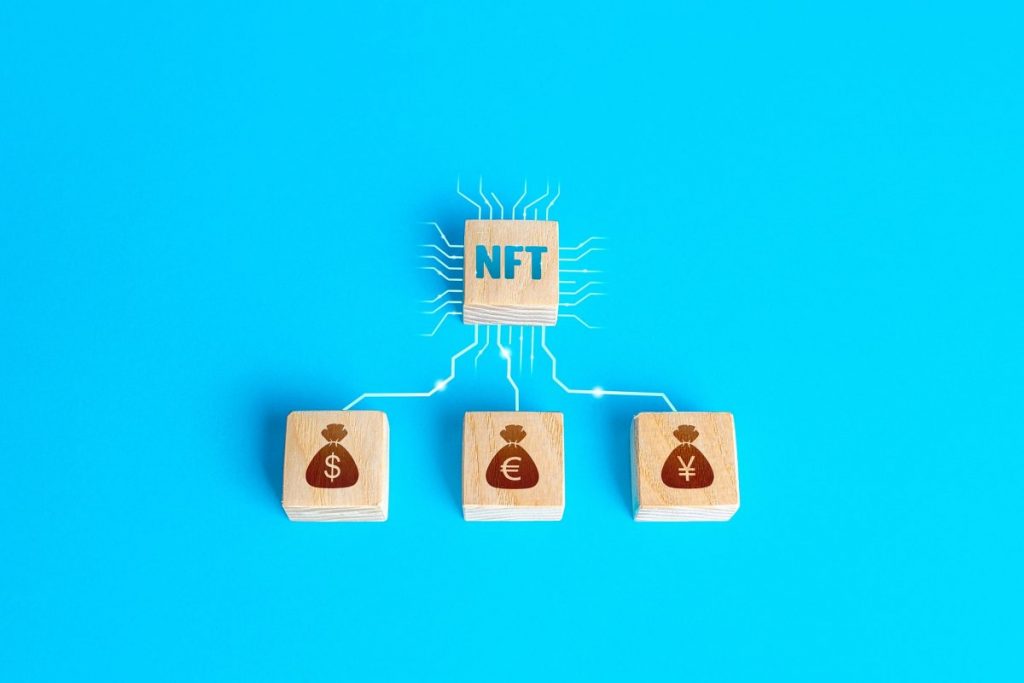Cryptocurrency education is your key to unlocking the dynamic world of digital assets and decentralized finance. This comprehensive guide will empower you with the knowledge and insights needed to confidently navigate the intricate landscape of cryptocurrencies, blockchain technology, and the global market.
Table of Contents
Introduction
In today’s rapidly evolving financial landscape, understanding cryptocurrency is no longer a luxury—it’s a necessity. Cryptocurrency education provides you with the tools to make informed decisions, seize opportunities, and secure your financial future.

The Basics of Cryptocurrency
Cryptocurrency education starts with understanding the fundamentals of this revolutionary digital currency.
What is Cryptocurrency?
At its core, cryptocurrency is a decentralized and digital form of currency that utilizes cryptography for secure transactions. It operates outside the realm of traditional financial institutions and governments, offering a new way to conduct financial transactions and store value.
How Cryptocurrencies Work
Cryptocurrencies operate on blockchain technology, a decentralized and distributed digital ledger that records all transactions across a network of computers. This technology ensures transparency, security, and immutability of transactions.
Advantages and Disadvantages of Cryptocurrencies
Exploring the potential benefits and drawbacks of cryptocurrencies is essential for making informed decisions. While cryptocurrencies offer the potential for decentralized transactions and financial inclusion, they also come with risks such as price volatility and regulatory uncertainty.
Understanding Blockchain Technology

The Foundation of Cryptocurrencies
Blockchain technology is the underlying framework that enables the existence and functionality of cryptocurrencies. It consists of a chain of blocks, each containing a record of transactions. This distributed and tamper-proof ledger ensures the integrity and security of data.
How Blockchain Works
Blockchain operates through consensus mechanisms, where network participants validate and record transactions. This decentralized approach eliminates the need for intermediaries, making transactions more efficient and transparent.
Applications Beyond Cryptocurrencies
Blockchain technology extends beyond cryptocurrencies, finding applications in various industries such as supply chain management, healthcare, and identity verification. Its potential to revolutionize traditional processes is driving innovation across sectors.
Exploring Different Types of Cryptocurrencies

Bitcoin: The First Cryptocurrency
Bitcoin, introduced in 2009 by Satoshi Nakamoto, is the pioneering cryptocurrency that laid the foundation for the entire industry. It remains the most widely recognized and valuable digital asset.
Altcoins and Tokens
Cryptocurrency education introduces you to the diverse world of altcoins and tokens, each with unique features and use cases. Tokens, on the other hand, represent assets or utilities on existing blockchain platforms.
Altcoins, or alternative cryptocurrencies, are any digital currencies other than Bitcoin. They encompass a wide range of projects and offer diverse features and use cases. Tokens, on the other hand, represent assets or utilities on existing blockchain platforms.
Stablecoins and Utility Tokens
Stablecoins are designed to minimize price volatility by pegging their value to external assets like fiat currencies or commodities. Utility tokens, on the other hand, are used to access specific functions or services within a blockchain ecosystem.
Getting Started with Cryptocurrency

Creating a Cryptocurrency Wallet
A cryptocurrency wallet is essential for securely storing, sending, and receiving digital assets. Wallets come in various forms, including hardware wallets, software wallets, and online wallets. Understanding how to choose and use the right wallet is crucial for protecting your investments.
Buying and Selling Cryptocurrencies
Cryptocurrency exchanges facilitate the buying and selling of digital assets. Different types of exchanges exist, ranging from centralized exchanges (CEXs) to decentralized exchanges (DEXs). Each has its pros and cons, and understanding how to use them is essential for trading.
Storing and Securing Your Investments
As cryptocurrencies are digital assets, securing them requires special considerations. Implementing security measures such as using hardware wallets, enabling two-factor authentication, and practicing good cybersecurity hygiene can help protect your holdings.
The Role of Exchanges in the Cryptocurrency Market

Centralized vs. Decentralized Exchanges
Centralized exchanges (CEXs) act as intermediaries, facilitating transactions between buyers and sellers. On the other hand, decentralized exchanges (DEXs) operate without a central authority, allowing users to trade directly with each other. Understanding the differences between these exchange types is crucial for choosing the right platform for your needs.
Trading Strategies and Tips
Successful cryptocurrency trading requires a solid understanding of trading strategies and market dynamics. Technical analysis, which involves studying price charts and patterns, and fundamental analysis, which assesses underlying factors, are two approaches traders use to make informed decisions.
Cryptocurrency Investment and Trading

Long-Term vs. Short-Term Investment
Investors in the cryptocurrency market can adopt either a long-term investment approach, where assets are held for an extended period, or a short-term trading strategy that seeks to capitalize on short-lived market movements. Each approach requires a distinct mindset and risk tolerance.
Technical and Fundamental Analysis
Technical analysis involves studying price charts, trading volume, and market indicators to predict future price movements. Fundamental analysis, on the other hand, examines the intrinsic value and real-world applications of cryptocurrencies.
Managing Risks and Returns
Cryptocurrency education provides you with strategies to manage risk and maximize returns, enhancing your overall investment experience.
Managing risk is paramount in cryptocurrency investment. Diversification, setting stop-loss orders, and staying informed about market news are strategies investors use to mitigate potential losses and maximize returns.
Regulations and Legal Considerations
Global Regulatory Landscape
Cryptocurrency regulations vary significantly from one country to another. Some countries have embraced cryptocurrencies, while others have imposed strict regulations or outright bans. Staying informed about the legal status of cryptocurrencies in your jurisdiction is crucial for compliance.
Tax Implications of Cryptocurrency Transactions
Cryptocurrency transactions can have tax implications, and it’s important to understand how tax authorities treat various types of transactions and assets. Keeping accurate records and consulting with tax professionals can help you fulfill your tax obligations and prevent legal issues.
Keeping Up with Cryptocurrency Trends

NFTs and Digital Collectibles
Non-Fungible Tokens (NFTs) have gained immense popularity for their unique digital ownership of assets such as art, music, and collectibles. Exploring the world of NFTs can offer new avenues for creativity and investment.
DeFi (Decentralized Finance) and Yield Farming
DeFi platforms enable users to access financial services such as lending, borrowing, and earning interest without intermediaries. Yield farming, a DeFi practice, allows users to earn rewards by providing liquidity to decentralized protocols.
The Future of Cryptocurrencies
Cryptocurrency education prepares you for the future by examining the evolving landscape and the potential impact of emerging technologies.
The cryptocurrency landscape continues to evolve, with ongoing technological advancements and increasing mainstream adoption. Staying informed about emerging trends and developments can provide insights into the future trajectory of cryptocurrencies.
Educating Yourself: Cryptocurrency Courses and Resources

Online Courses and Tutorials
Numerous online courses and tutorials are available to help you deepen your understanding of cryptocurrencies, blockchain technology, and trading strategies. These resources can empower you with the knowledge needed to make informed decisions.
Books and Publications
A plethora of books and publications provide comprehensive insights into various aspects of cryptocurrencies. From beginner guides to advanced technical analyses, these resources cater to individuals with diverse levels of expertise.
Cryptocurrency Communities and Forums
Engaging with cryptocurrency communities and forums allows you to connect with like-minded individuals, share knowledge, and stay updated about the latest developments. These platforms offer a space for discussions, debates, and networking.
Conclusion: Embracing the World of Cryptocurrencies
Cryptocurrencies represent a transformative force that has the potential to reshape the financial landscape. By acquiring a solid foundation in cryptocurrency education, understanding blockchain technology, and staying informed about market trends, you can confidently navigate this exciting realm and harness its opportunities for financial growth and empowerment.


